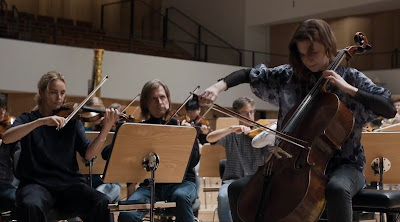In the wake of the MeToo movement, a number of renowned and
respected celebrity figures were exposed in the public eye for being physical,
psychological and/or sexual abusers.
While the movement continues to send shockwaves throughout the entertainment
worlds, one area which didn’t seem to get as much coverage in mainstream media
was the world of classical music and operas.
Characters such as conductors James Levine, Daniele Gatti and Charles
Dutoit come to mind as far as distinguished indefatigable figures in the
orchestral conducting world who were outed from the industry which enabled them
to get away with it for so long.
Moreover, where is the line drawn between creative genius and cruel
abuses that are perpetrated by someone in a position of power?
--Andrew Kotwicki





